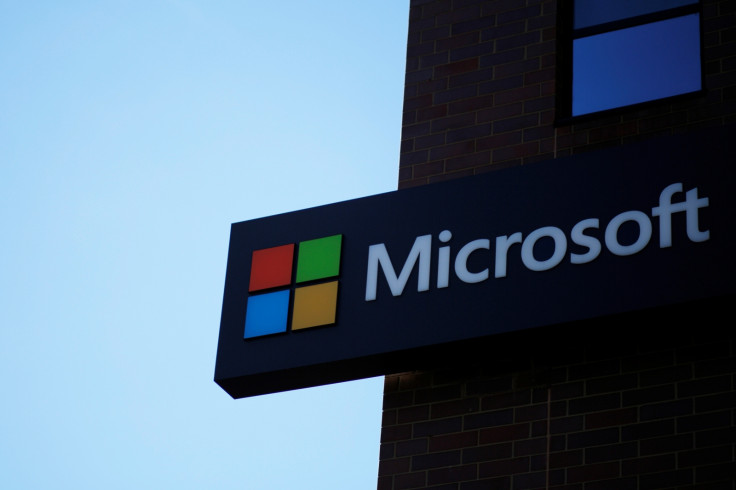Education can revive the PC market — and Microsoft knows it
Microsoft must follow Google Chromebook's lead and spread into the low-price education market.

The PC has been in a death spiral for the last five years. That was the last time there was any growth recorded in the industry — that is until IDC revealed the figures for the first quarter of 2017, when shipments of PCs were up a whopping 0.6% year-on-year.
HP was the big winner, topping the PC sales for the first time since 2012, with Lenovo, Dell, Apple and Acer filling out the top five. Even better news came from IDC, with the research firm suggesting even better times were to come. "Users have generally delayed PC replacements rather than giving up PCs for other devices. The commercial market is beginning a replacement cycle that should drive growth," IDC's Jay Chou said.
The PC industry's moment of celebration was pretty short-lived however, when the other major research firm Gartner later the same day announced that the downward trend was continuing, reporting a 2.4% decline, marking the first time unit shipments fell below 63 million in a quarter since 2007.
The reason for the disparity is revealed in this line in the Gartner report: "Data includes desk-based PCs, notebook PCs and ultramobile premiums (such as Microsoft Surface), but not Chromebooks or iPads."
IDC's figures do include Chromebooks and so it appears that the Google-powered lightweight laptops could be the biggest source of hope for the PC industry. While we can't say categorically that Chromebooks are the reason for the increase in sales (IDC doesn't break down Windows vs Chromebook figures for each manufacturer publicly), it is reasonable to assume that they are having a material impact on the market.
IDC does say that, in the US at least, "the commercial PC market came out strong mostly backed by growth of Chromebooks."
It remains a mystery why Gartner doesn't count Chromebooks towards its PC figure, given it does include Surface sales, but it seems that the market is speaking, and Chromebooks are here to stay.
A slow burn
Chromebooks have been a slow burn. Launched in 2011, Google has not given this platform anything like the attention it has to Android — which given the scale of the smartphone market is a reasonable thing to do — but over the years, they have gained momentum.
Chromebooks found a niche in certain industries, and in particular in education where they are ideally suited to the needs of teachers and students, given their online, collaborative features — and even more importantly their low price tags.
Chromebooks were initially dismissed by many for limitations such as no local storage and the need for an always-on connection for the laptop to function properly. But as ubiquitous connectivity and cloud storage become the norm, these lightweight and cheap laptops become more and more appealing. Add to that the fact that all Android apps can now run on Chromebooks, and it is easy to see why more and more people are buying them.
Microsoft was among those who initially dismissed the Chromebook as Google's wacky attempt at reinventing the PC, but it appears that just like the smartphone revolution, the Redmond-based company is now looking to play catch-up.
Surface Light
The company is rumoured to be working on a cheaper version of it Surface tablet which will be designed specifically for the education market. Given the success of the Surface range since it launched a year after the first Chromebook, the idea of a budget-friendly model which would offer the best aspects of the main product does sound intriguing.
Microsoft is holding a press conference in New York on 5 May, and the invitation carried the hashtag #MicrosoftEDU, suggesting an education-focused event. The company has also recently re-hired Joe Belfiore, who once ran Microsoft's Windows Phone division.
His new role? "To find new ways to make money with Windows 10 as the traditional licensing model of the OS goes away, especially in the lower-priced segment," according to renowned Microsoft expert Paul Thurrott. In an interview with Mashable, Belfiore is referred to as "education sponsor and advocate in the Windows team." In that same interview Belfiore was asked whether Microsoft will make a thin-client Windows to compete with Chrome OS. "If you mean an OS that doesn't run rich Windows apps, then no," he said.
Given the stagnation in the PC market for the last five years, it seems like a smart move for Microsoft to try and push Windows in the education sector, given the success of the Chromebook series.
Just as the Surface spawned a plethora of convertibles and 2-in-1 devices, an education-focused Surface, running a modified version of Windows 10, could also drive the likes of Acer, HP and Dell to create similar PCs, rather than the Chromebooks they currently produce.
The PC market may not be dead, but Microsoft knows that it needs to be smart if Windows is to remain the mainstay of the industry — and focusing on education sounds like a good start.
© Copyright IBTimes 2025. All rights reserved.






















